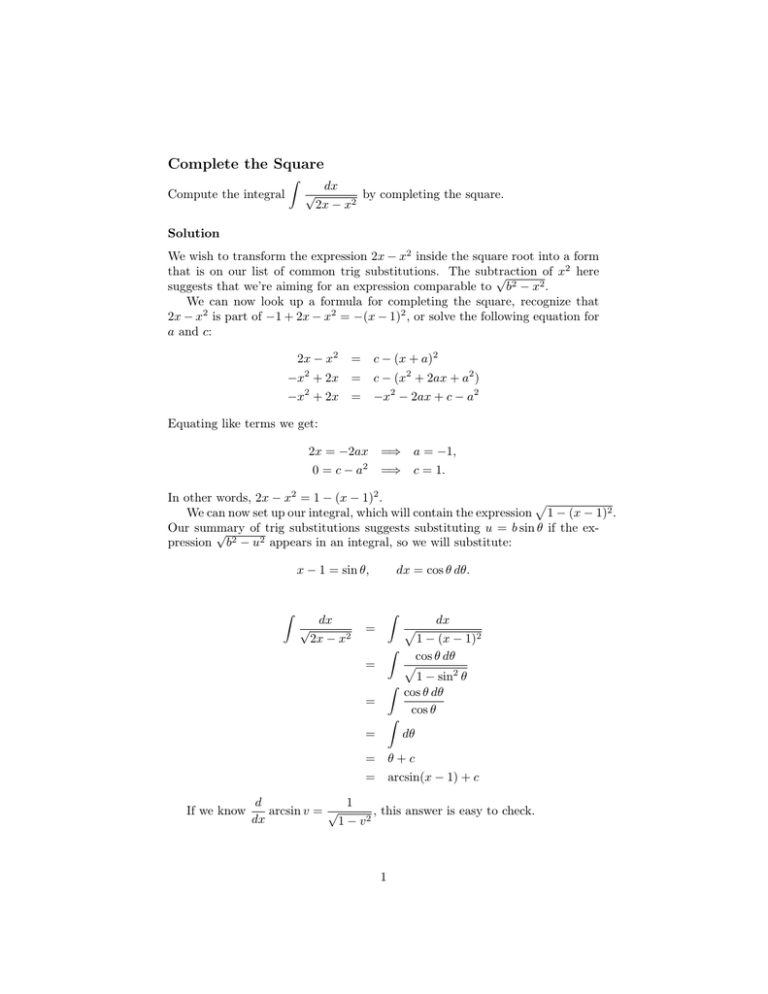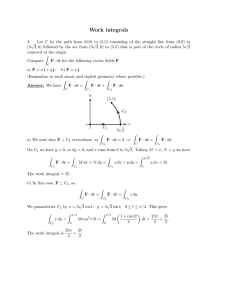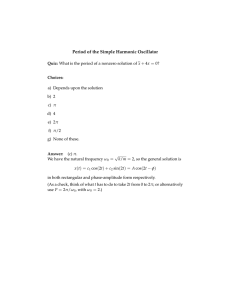Complete the Square
advertisement

Complete the Square � Compute the integral dx √ by completing the square. 2x − x2 Solution We wish to transform the expression 2x − x2 inside the square root into a form that is on our list of common trig substitutions. The subtraction of x2 here √ suggests that we’re aiming for an expression comparable to b2 − x2 . We can now look up a formula for completing the square, recognize that 2x − x2 is part of −1 + 2x − x2 = −(x − 1)2 , or solve the following equation for a and c: 2x − x2 −x2 + 2x 2 −x + 2x = c − (x + a)2 c − (x2 + 2ax + a2 ) = = −x2 − 2ax + c − a2 Equating like terms we get: 2x = −2ax =⇒ a = −1, 0 = c − a2 =⇒ c = 1. In other words, 2x − x2 = 1 − (x − 1)2 . � We can now set up our integral, which will contain the expression 1 − (x − 1)2 . Our summary of trig substitutions suggests substituting u = b sin θ if the ex­ √ pression b2 − u2 appears in an integral, so we will substitute: x − 1 = sin θ, � dx √ 2x − x2 dx = cos θ dθ. � = dx � 1 − (x − 1)2 cos θ dθ � = 1 − sin2 θ � cos θ dθ = cos θ � = dθ � If we know = θ+c = arcsin(x − 1) + c d 1 arcsin v = √ , this answer is easy to check. dx 1 − v2 1 MIT OpenCourseWare http://ocw.mit.edu 18.01SC Single Variable Calculus�� Fall 2010 �� For information about citing these materials or our Terms of Use, visit: http://ocw.mit.edu/terms.


